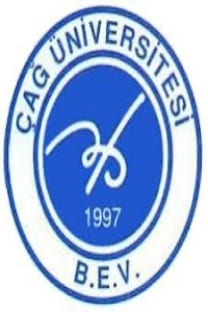STRATEJİK YÖNETİM AÇISINDAN TAYLORİZM PRENSİPLERİNİN ZAMANIMIZA YANSIMALARI
Ekonomi ve İşletme Yönetimi, Bilimsel Yönetim, Evrensellik
Owing to Strategic Management the Reflections of Taylorism Principles to the Present Period
___
Aldemir C., Ataol A. Ve Budak G., (2001). İnsan Kaynakları Yönetimi, İzmir, Barış Yayınları, 4. Baskı, s: 64.Arslan H.,(1992). Epistemik Cemaat , İstanbul , Paradigma Yayınları Atta D. V.,(1986). Why is There No Taylorism in the Soviet Union , Comparative Politics , 18/3 , s: 327-338.
Belek İ., (1999). Postkapitalist Paradigmalar, İstanbul, Sorun Yayınları, s: 55.
Choudhury M. A. Ve Korvin G., (2001). Sustainability in Knowledge- Centered Sustainability in Higher Education, 2/3, s: 257-266. Systems, International Journal of
Cooke M. L., (1913). The Spirit and Social Significanca of Scientific Management, The Journal of Political Economy, 21/6, s: 481-493.
Corwin S.,(2003). Picturing Efficiency : Precisionism , Scientific Management and the Effacement of Labor , Represantions , 84 , (In Memory of Michael Rogin) , s: 139-165.
Drucker P., (1993). Post Capitalist Society, New York: Harper Business, s: 19-97.
Drucker P., (1999). Knowledge and Worker Productivity, Cal. Mgt. Review, 41/2, s: 79-86.
Ertürte , M ., (2000) İşletmelerde Yönetim ve Organizasyon , Beta Yayıncılık , İstanbul, s:8-22.
Fristone , J. M. (1971). Remarks on Concept Formation : Theory Building and Theory Testing, Philosophy of Science, 38/4, s: 570-604.
Fişek K., (1979). Yönetim, Yönetim Biliminin Gelişmesinde Planlama, Ankara, Sevinç Matbaası, s:28.
Fodor J. A., (1991). The Dogma That Didn’t Bark (A Fragment of Naturalized Epistwmology), Mind, 2001, s: 223.
Friedman G., (2005). Capitalism, Social Privilege and Managerial Ideologies, Enterprise and Society, 6/4, s: 769-771.
Gantham E., (2005). Capitalism, Social Privilege and Managerial Ideologies, England , Ashgate Publishing, s:48.
Heinemann F. H. (1948). Are There Only Two Kinds of Truth ?, Philosophy and Phenomenological Research, 16/3, s: 367-379.
Kantorovich A., (1998). Philosophy of Science: From Justification to Explanatinon , The British Journal for the Philosophy of Science, 39/4, s: 469-494.
Koçel T., (2003). İşletme Yöneticiliği, Kırklareli, Beta Basım, s: 166-230
Kuhn T. S., (1969). The New Reality in Art and Science, Commet , Comperative Studies in Society and History, 11/4, s: 403-417.
Kuhn T. S., (1984). Professionalization Recollected in Tranquility , Sarton Science and History , 75/1, s: 29-32.
Kuhn T. S., (1990). The Road since Structure, PSA: Proceedings of Biennial Meeting of the Philosopy of Science Association, 1990/2, s: 3-13.
Lincoln Y. S. Ve Guba E. G., (2003). The Failure of Positivist Science Turninhg Points in Qualitative Research , (Eds : Lincoln Y. S., Denzin N. K.) Rowman Altamira, s: 500-515.
Litter C. R., (1978) Understanding Taylorism , The Britsh Journal of Sociology , 29/2, s: 185-202.
Mucuk İ., (2003). Modern İşletmecilik, İstanbul, Türkmen Kitapevi, s: 253- 255.
Özakpınar Y., (2003). İslam Medeniyet ve Türk Kültürü, İstanbul, Ötüken Yayınevi, s: 21-27.
Özgen H. ve Yalçın A., (2006). Temel İşletmecilik Bilgisi, Adana, Nobel Kitapevi, s: 126-129.
Popper K., (2001). Daha İyi Bir Dünya Arayışı , (çev:İlknur AKA), İstanbul, Yapı Kredi Yayınları, s: 82-84.
Putnam H.,(1993). Objectivity and the Science-Ethis Distinction , The Quality of Life, (eds: Nussbum M. C., Sen A. K.), Clarendon Press , Oxford, s: 143-157.
Rosenberg S., (2003). Questioning Assumptions About the Role of Education in American Society, A. Review of Schooling in Capitalist America, Physics, 23-28.
Scott W. G., (1959). The Early Record of a Modern Administrative Dilemma, The Journal of the Academy of the Management, 2/2, 97- 110.
Scott W. G., (1967), Organizastion Theory; Behaviour Analysis for Management, Irwin, s: 470-471.
Scoville J. G., (2004). Was Lenin Truly Taylorixed? A Rejoinder to Devinatz, Indudtrial Relations, 43/2, 480-484.
Smyser S. (1925). Who was Frederick Tylor?, The Scientific Monthly, 20/5, 527-529.
Taylor F. W., (1911). The Principles of Scientific Management, Harper & Brothers Publishers, New York, London, s: 25-32.
Wallerstein I., (2003). Yeni Bir Sosyal Bilim İçin, (çev: E. Abadoğlu), İstanbul, Aram Yayıncılık, s:38-39.
Whitehead A. N., (1933). Adventures of Ideas, Harmondsworth: Penguin, s:73-94.
Witzel M., (2005), Where Scientific Management Went Owry, European Business Forum, 21, s: 89-91.
Wrege C. D. ve Hodgetts R. M., (2000). Frederick Winslow Taylor’s 1899
Pig Iron Observations: Examining Fact, Fiction and Lessons for the New Millenium, The Academy of Management Journal, 43/6, s: 1283- 1291.
Wrege C. D. ve Perroni A. D., (1974). Taylor’s Pig Tale: A Historical Analiysis of Frederick W. Taylor’s PigIronExperiments, The Academy of Management Journal, 17/1, s: 6-27.
Wrege C. D. ve Stokta A. M., (1978). Cooke Creates a Classic: The Story Behind F. W. Taylor’s Principles of Scientific Management, The Academy of Management Review, 3/4, s: 736-749.
Ulusal İşletmecilik Kongresi Bildirileri Kitabı, Muğla, Marmaris, 2013- 314.
Web.njit.edu/soltis/papers/Frederick%20Taylor%20v7.ppt.
http://www.northstar.k12.ak.us/school/ryn/projects/inventors/taylor/taylor.ht ml., s: 1-29.
- ISSN: 1304-8392
- Yayın Aralığı: Yılda 2 Sayı
- Başlangıç: 2004
- Yayıncı: Çağ Üniversitesi
Hasan GÜL, Mehmet İNCE, Hakan CANDAN
Shirom-Melamed Tükenmişlik Ölçeğinin Güvenirlik ve Geçerlik Çalışması
İlksun Didem ÜLBEĞİ, Esengül İPLİK
Hasan GÜL, Mehmet İNCE, Hakan CANDAN
Shirom-Melamed Tükenmişlik Ölçeğinin Güvenirlik ve Geçerlik Çalışması
İlksun Didem ÜLBEĞİ, Esengül İPLİK
STRATEJİK YÖNETİM AÇISINDAN TAYLORİZM PRENSİPLERİNİN ZAMANIMIZA YANSIMALARI
STRATEJİK YÖNETİM AÇISINDAN TAYLORİZM PRENSİPLERİNİN ZAMANIMIZA YANSIMALARI
